Contents
Guide

The author and publisher have provided this e-book to you for your personal use only. You may not make this e-book publicly available in any way. Copyright infringement is against the law. If you believe the copy of this e-book you are reading infringes on the authors copyright, please notify the publisher at: us.macmillanusa.com/piracy. Contents for Noah Averno. Ancient name Avernus.
A small crater lake, ten miles west of Naples, Italy; regarded by the ancient Romans as the entrance to the underworld. THE NIGHT MIGRATIONS This is the moment when you see again the red berries of the mountain ash and in the dark sky the birds night migrations. It grieves me to think the dead wont see them these things we depend on, they disappear. What will the soul do for solace then? I tell myself maybe it wont need these pleasures anymore; maybe just not being is simply enough, hard as that is to imagine. I OCTOBER Is it winter again, is it cold again, didnt Frank just slip on the ice, didnt he heal, werent the spring seeds planted didnt the night end, didnt the melting ice flood the narrow gutters wasnt my body rescued, wasnt it safe didnt the scar form, invisible above the injury terror and cold, didnt they just end, wasnt the back garden harrowed and planted I remember how the earth felt, red and dense, in stiff rows, werent the seeds planted, didnt vines climb the south wall I cant hear your voice for the winds cries, whistling over the bare ground I no longer care what sound it makes when was I silenced, when did it first seem pointless to describe that sound what it sounds like cant change what it is didnt the night end, wasnt the earth safe when it was planted didnt we plant the seeds, werent we necessary to the earth, the vines, were they harvested? Summer after summer has ended, balm after violence: it does me no good to be good to me now; violence has changed me. Daybreak.
The low hills shine ochre and fire, even the fields shine. I know what I see; sun that could be the August sun, returning everything that was taken away You hear this voice? This is my minds voice; you cant touch my body now. It has changed once, it has hardened, dont ask it to respond again. A day like a day in summer. Exceptionally still. The long shadows of the maples nearly mauve on the gravel paths.
And in the evening, warmth. Night like a night in summer. It does me no good; violence has changed me. My body has grown cold like the stripped fields; now there is only my mind, cautious and wary, with the sense it is being tested. Once more, the sun rises as it rose in summer; bounty, balm after violence. Balm after the leaves have changed, after the fields have been harvested and turned.
Tell me this is the future, I wont believe you. Tell me Im living, I wont believe you. Snow had fallen. I remember music from an open window. Come to me, said the world. Sunrise. Sunrise.
A film of moisture on each living thing. Pools of cold light formed in the gutters. I stood at the doorway, ridiculous as it now seems. What others found in art, I found in nature. What others found in human love, I found in nature. Very simple.
But there was no voice there. Winter was over. In the thawed dirt, bits of green were showing. Come to me, said the world. I was standing in my wool coat at a kind of bright portal I can finally say long ago; it gives me considerable pleasure. Beauty the healer, the teacher death cannot harm me more than you have harmed me, my beloved life.
The light has changed; middle C is tuned darker now. And the songs of morning sound over-rehearsed. This is the light of autumn, not the light of spring. The light of autumn: you will not be spared. The songs have changed; the unspeakable has entered them. This is the light of autumn, not the light that says I am reborn.
Not the spring dawn: I strained, I suffered, I was delivered. This is the present, an allegory of waste. So much has changed. And still, you are fortunate: the ideal burns in you like a fever. Or not like a fever, like a second heart. The songs have changed, but really they are still quite beautiful.
They have been concentrated in a smaller space, the space of the mind. They are dark, now, with desolation and anguish. And yet the notes recur. They hover oddly in anticipation of silence. The ear gets used to them. The eye gets used to disappearances.
You will not be spared, nor will what you love be spared. A wind has come and gone, taking apart the mind; it has left in its wake a strange lucidity. How privileged you are, to be still passionately clinging to what you love; the forfeit of hope has not destroyed you. Maestoso, doloroso: This is the light of autumn; it has turned on us. Surely it is a privilege to approach the end still believing in something. It is true there is not enough beauty in the world.
It is also true that I am not competent to restore it. Neither is there candor, and here I may be of some use. I am at work, though I am silent. The bland misery of the world bounds us on either side, an alley lined with trees; we are companions here, not speaking, each with his own thoughts; behind the trees, iron gates of the private houses, the shuttered rooms somehow deserted, abandoned, as though it were the artists duty to create hope, but out of what? what? the word itself false, a device to refute perception At the intersection, ornamental lights of the season. I was young here. Riding the subway with my small book as though to defend myself against this same world: you are not alone, the poem said, in the dark tunnel.
The brightness of the day becomes the brightness of the night; the fire becomes the mirror. My friend the earth is bitter; I think sunlight has failed her. Bitter or weary, it is hard to say. Between herself and the sun, something has ended. She wants, now, to be left alone; I think we must give up turning to her for affirmation. Above the fields, above the roofs of the village houses, the brilliance that made all life possible becomes the cold stars.
Lie still and watch: they give nothing but ask nothing. From within the earths bitter disgrace, coldness and barrenness my friend the moon rises: she is beautiful tonight, but when is she not beautiful? PERSEPHONE THE WANDERER In the first version, Persephone is taken from her mother and the goddess of the earth punishes the earththis is consistent with what we know of human behavior, that human beings take profound satisfaction in doing harm, particularly unconscious harm: we may call this negative creation. Persephones initial sojourn in hell continues to be pawed over by scholars who dispute the sensations of the virgin: did she cooperate in her rape, or was she drugged, violated against her will, as happens so often now to modern girls. As is well known, the return of the beloved does not correct the loss of the beloved: Persephone returns home stained with red juice like a character in Hawthorne I am not certain I will keep this word: is earth home to Persephone? Is she at home, conceivably, in the bed of the god? Is she at home nowhere? Is she a born wanderer, in other words an existential replica of her own mother, less hamstrung by ideas of causality? You are allowed to like no one, you know. The characters are not people. They are aspects of a dilemma or conflict.
Three parts: just as the soul is divided, ego, superego, id. Likewise the three levels of the known world, a kind of diagram that separates heaven from earth from hell. You must ask yourself: where is it snowing? White of forgetfulness, of desecration It is snowing on earth; the cold wind says Persephone is having sex in hell. Unlike the rest of us, she doesnt know what winter is, only that she is what causes it. She is lying in the bed of Hades. What is in her mind? Is she afraid? Has something blotted out the idea of mind? She does know the earth is run by mothers, this much is certain.




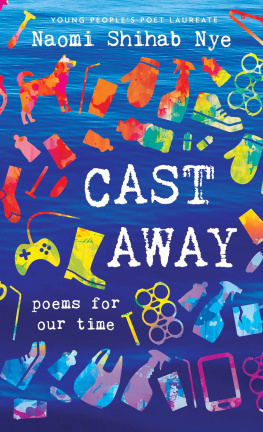
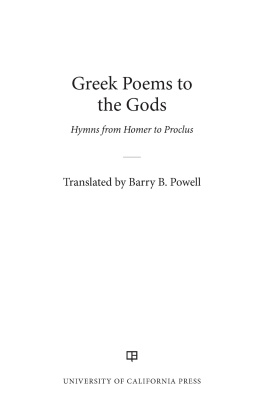

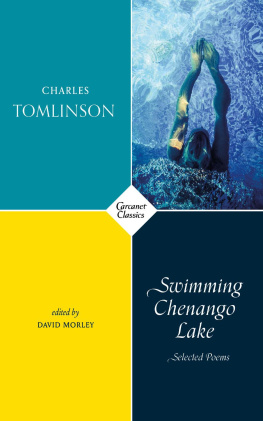
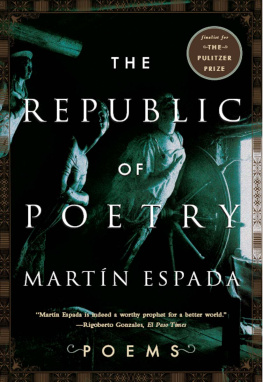
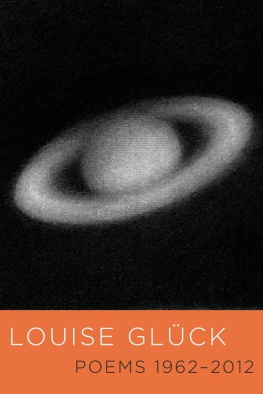
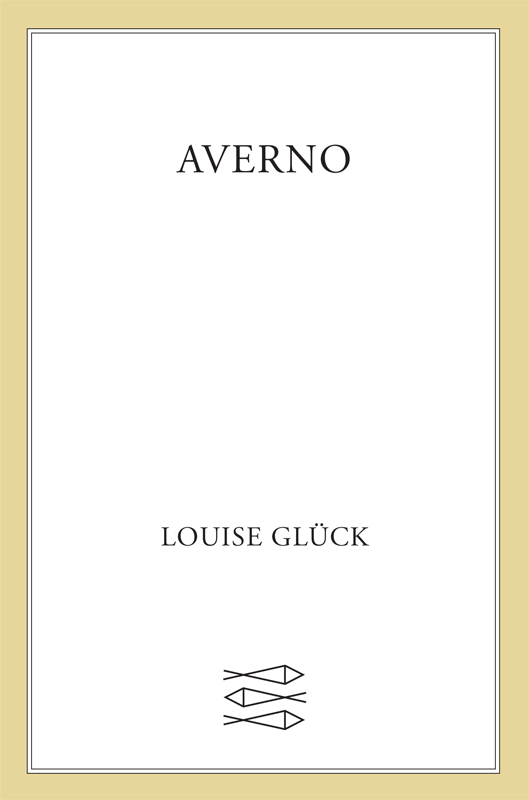
 The author and publisher have provided this e-book to you for your personal use only. You may not make this e-book publicly available in any way. Copyright infringement is against the law. If you believe the copy of this e-book you are reading infringes on the authors copyright, please notify the publisher at: us.macmillanusa.com/piracy. Contents for Noah Averno. Ancient name Avernus.
The author and publisher have provided this e-book to you for your personal use only. You may not make this e-book publicly available in any way. Copyright infringement is against the law. If you believe the copy of this e-book you are reading infringes on the authors copyright, please notify the publisher at: us.macmillanusa.com/piracy. Contents for Noah Averno. Ancient name Avernus.